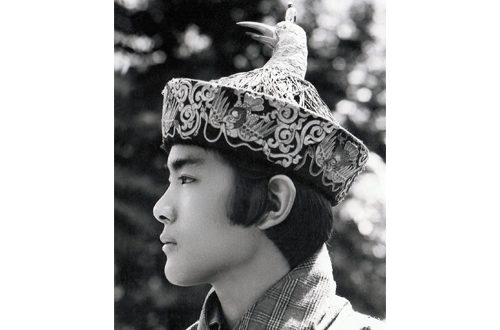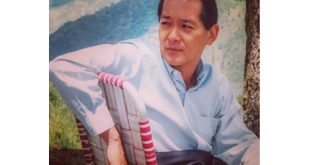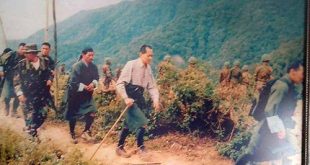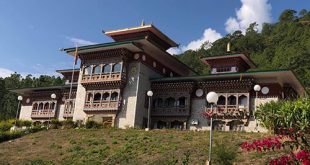Since Bhutan’s first monarch was elected in 1907, the royal succession has unfolded with remarkable grace. For more than a century, each King has ascended to the throne at a young age, seamlessly embracing the mantle of leadership and the challenges that accompany it. These youthful ascensions have become a celebrated tradition, inspiring confidence and unity among the Bhutanese people.
Guided by the saying, “The son exceeds the father,” the Wangchuck family has exemplified a long-standing mastery of succession planning. Although the founder, King Ugyen Wangchuck, was 45 years old when he was elected as the first hereditary king, his successors took on their royal responsibilities at remarkably young ages. The Second King ascended at just 21, the Third King at 25, and the Fourth King was only 16 when he assumed the throne, making him the youngest monarch at that time.
The Fifth King succeeded the throne in 2006 following the voluntary abdication of his father, the Fourth King. At the time of his ascension, he was 26 years old. In every case, youth proved to be an asset, with each king not only fulfilling his duties but ultimately surpassing expectations.
Consoling a Nation
Upon succeeding his father, the Fourth King’s first test of leadership was his first choice of duty: his people. He had to console their grief, reassure them of the nation’s stability, and seek their support to fulfil the sacred duty he had inherited. In his first address to the nation, he spoke with a wisdom that defied his years.
He gently acknowledged the universal nature of loss, reminding his subjects that his father had “only succumbed to the transient nature of worldly existence” and that it was better to pray for his soul than to linger in grief. He honoured his father’s legacy, noting that Bhutan had transformed from “a remote and isolated country” into a nation on the world stage because of the late King’s vision. He also explained that his father’s cremation would take place at Kurjey Lhakhang in Bumthang, in accordance with the late King’s personal wishes.
Looking to the future, the young monarch demonstrated both humility and resolve. He pledged to continue the wise policies his father had established, stating, “I shall be able to consult with the Royal Advisory Council and with the Lhungye Shungtshog Cabinet.” He then made a direct and heartfelt appeal for unity:
“Speaking for myself, I have an earnest desire to serve our beloved country and its people as best as I can… I also hope that all of you, the Monks of the state monasteries, the government servants and the public, will assist me as well as you can, as you assisted my late father… if the Monk Body, the Government servants and the public give careful consideration to the welfare of the Kingdom with full loyalty, the Kingdom will be able to enjoy its state of peace and prosperity for a long time to come.”
On 28 October 1972, the Fourth King fulfilled his sacred duty as a son, overseeing his father’s cremation at Kurjey monastery in Bumthang.
Earning the People’s Trust
A significant question arose shortly after the King’s accession. In 1970, the National Assembly had passed a resolution stating that if a Crown Prince ascended the throne before the age of 21, a Council of Regents should be appointed to govern.
When the 18-year-old King attended his first National Assembly, he respected this law and commanded the Assembly to appoint the council members. However, the Assembly reached a unanimous decision without any need for debate. They submitted to His Majesty that the rule was intended for a prince “of too young an age to reign in a proper manner.” In their view, the new King was already “fully capable of reigning.”
Given his clear declaration that he would follow his father’s policies, the public was overjoyed. The Assembly, with full faith, requested that His Majesty take upon himself the right to rule alone. The provision for a regency council was set aside.
In this historic first session, the King addressed the Assembly, accepting the profound responsibility they had placed in him:
“You… have vested me with the powers of a Ruler. I have little experience but I shall rely upon the sound judgment of this august body, and endeavour to serve the nation to the best of my ability… Our country’s independence has been due to the blessings of the Lord Buddha, our guardian deities and our forefathers. Also, we owe this to the strong and undefiled faith between the Ruler, the Monk Body, the Government and the people.”
A monarch’s worth is measured not by his title, but by his actions and their effect on the history of his nation. The devotion, loyalty, and love the Bhutanese people feel for His Majesty Jigme Singye Wangchuck are a testament to his profound concern for their welfare.
Throughout his 34-year reign from 1972 to 2006, the Fourth King devoted himself tirelessly and selflessly to advancing the welfare of his people and country. In 2006, at 51 years old, he chose to abdicate the throne, reaffirming Bhutan’s tradition of youthful monarchs and so fully embodying the adage, “The son exceeds the father,” that the Bhutanese people honoured him with the reverential title “ The Great Fourth”.
 The Bhutanese Leading the way.
The Bhutanese Leading the way.




